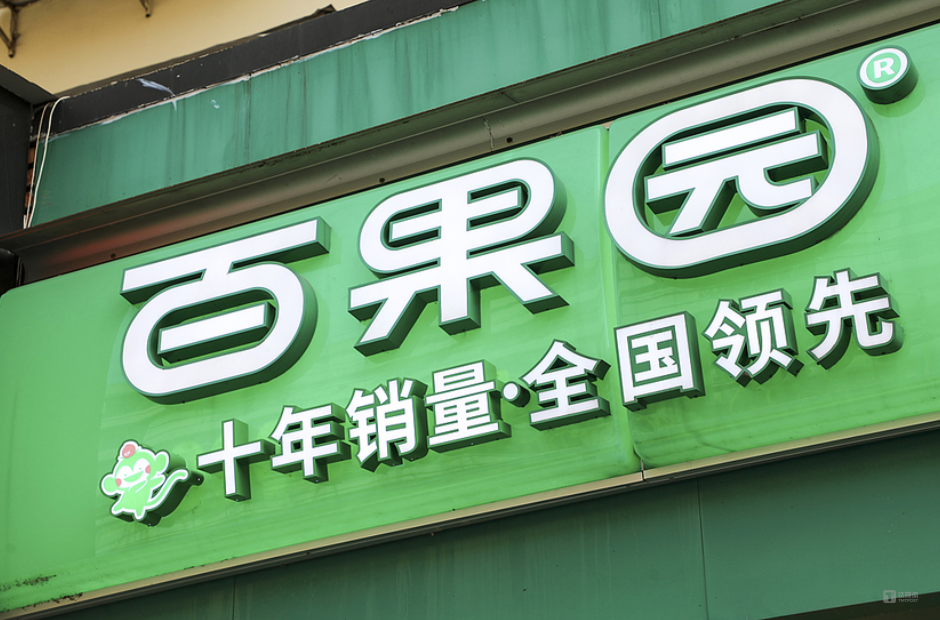
AsianFin — Shenzhen Pagoda Industrial (Group) Corporation Limited, known simply as Pagoda, has found itself at the center of a heated public debate over fruit prices, highlighting the challenges facing premium fruit retailers in China’s rapidly evolving market.
Founded in 2001, Pagoda has grown into a large-scale chain integrating fruit procurement, planting support, post-harvest preservation, logistics, marketing, brand management, retail stores, IT systems, financial capital, and research and education. The company has long emphasized educating consumers about quality fruit, a principle that recently fueled controversy online.
A viral video featuring Pagoda’s founder and chairman, Yu Huiyong, responding to complaints about high fruit prices sparked widespread discussion. In the clip, Yu stated, “In my view, there are only two types of business: one that takes advantage of consumers’ ignorance, and one that educates consumers to become more mature. Pagoda has consistently taken the path of educating consumers. We don’t just cater to consumers, especially when they may not fully understand what ‘cheap’ really means. We want to inform them, and in the end, it’s up to them to decide.”
Yu further explained that “cheap fruit is oversupplied, but truly good fruit is always in short supply, which is one reason for its higher price. On the one hand, we hear complaints that Pagoda is too expensive; on the other hand, we have tens of millions of members. If there weren’t a group of customers who truly recognize Pagoda’s value, the company wouldn’t exist.”
Despite his clarification, the comments drew backlash, with some netizens comparing him to the founder of Zhong Xuegao, who famously remarked, “That’s the price—take it or leave it.” Others likened the statements to controversial cases in which companies appeared indifferent to consumers’ concerns. The controversy caused Pagoda’s stock to drop sharply. On August 11, shares opened down 7%, reducing the company’s market capitalization to about HK$2.6 billion.
A Pagoda spokesperson said the viral clip had been selectively edited to highlight controversial remarks and that the full video provides context, presenting a more balanced view. Nonetheless, the incident underscores a persistent tension between consumer expectations and retail strategy in China’s competitive market.
Pagoda has faced significant operational pressures in recent years. As the first publicly listed Chinese fruit retail chain, it debuted on the Hong Kong Stock Exchange in January 2023. Yet the economics of fruit retail—long supply chains, high spoilage rates, and tight margins—remain challenging.
According to Pagoda’s financial statements, the company posted revenue of 11.391 billion yuan in 2023, with a cost of sales of 10.076 billion yuan, resulting in a net profit of 362 million yuan. In 2024, revenue declined 9.8% year-on-year to 10.273 billion yuan, with a net loss of 386 million yuan, marking the first loss in nearly five years.
The company’s stock price has mirrored these challenges. From an initial market capitalization of HK$9.474 billion at IPO, shares now hover around 1 HKD, a nearly 70% drop this year, shrinking market value to less than HK$2.7 billion.
Pagoda has sought to respond through strategic adjustments. Its 2024 financial report emphasized a focus on high-quality retail development, improving store efficiency, and reshaping consumer perceptions of “high value for money.” The company is adjusting product categories, enhancing price competitiveness while maintaining quality, and promoting a “high value for money” brand image.
Since August 2024, Pagoda has upgraded its category management system, restructuring offerings around “high-traffic hero products” and “extreme value-for-money seasonal items” based on consumer behavior data.
Pagoda’s challenges extend beyond pricing. Chinese consumers now navigate a market characterized by abundant product variety and fragmented retail channels, from offline supermarkets to online e-commerce and instant delivery platforms.
Major players are intensifying competition. JD.com entered food delivery in February, Meituan launched its instant retail brand in April, and Taobao Flash Sale and Ele.me introduced major campaigns with significant subsidies. Daily order volumes illustrate the scale: Meituan reached 150 million orders, Taobao Flash Sale 80 million, and JD.com 25 million. Instant retail’s rapid expansion has pressured traditional channels, and fresh produce remains a particularly contested segment.
In response, Pagoda is pursuing multi-channel strategies, expanding store formats, targeting lower-tier and overseas markets, and enhancing online presence through partnerships with third-party platforms. The company also plans to optimize store layouts, focus resources on high-performing locations, and improve franchisee support to boost operational efficiency and profitability.
Despite Pagoda’s strategic efforts, maintaining premium pricing in a highly competitive market is challenging. Membership data underscores this pressure: by the end of 2024, paid members fell to 854,000, a 27.1% decline from the previous year, reflecting the difficulty of retaining loyalty amid growing alternatives.
Analysts note that the company’s predicament reflects broader trends in premium fruit retail and the retail sector overall. The rise of instant retail, fresh food e-commerce, and community group buying has disrupted traditional models, forcing companies like Pagoda to adapt rapidly to maintain relevance.
Yu Huiyong has acknowledged these pressures, stressing the importance of educating consumers while navigating evolving market dynamics. Whether Pagoda can maintain its premium positioning, retain members, and achieve sustainable growth in this shifting landscape remains a key question for investors and industry observers alike.
Pagoda’s recent controversy and market struggles highlight the complexities of modern retail in China. Balancing consumer education, premium pricing, and competitiveness in a fragmented, multi-channel market is a formidable challenge. For Pagoda, success will depend on its ability to innovate in both product strategy and customer engagement while adapting to an increasingly dynamic retail ecosystem.
As the company navigates this critical period, the broader lesson for China’s retail sector may be that maintaining value perception in the eyes of consumers is just as important as operational efficiency and market reach.

更多精彩内容,关注钛媒体微信号(ID:taimeiti),或者下载钛媒体App

